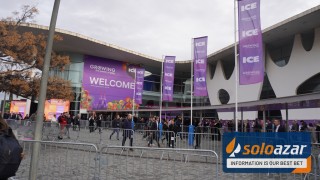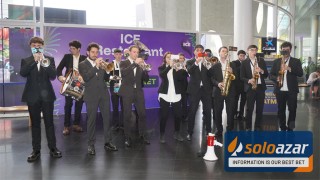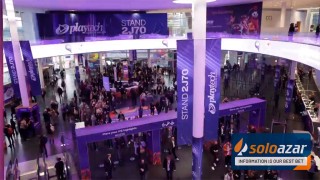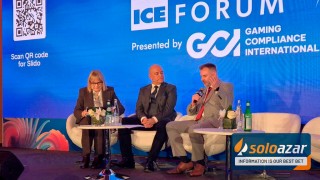Brazilian betting market to be "cleaned up" by a stricter legislation
Wednesday 04 de September 2024 / 12:00
2 minutos de lectura
(Brasilia).- After years without proper regulation, the betting market in Brazil is now undergoing a professionalization effort that could attract significant investment. However, the challenge of effective oversight remains. Discover what's already changed and what lies ahead for the industry.
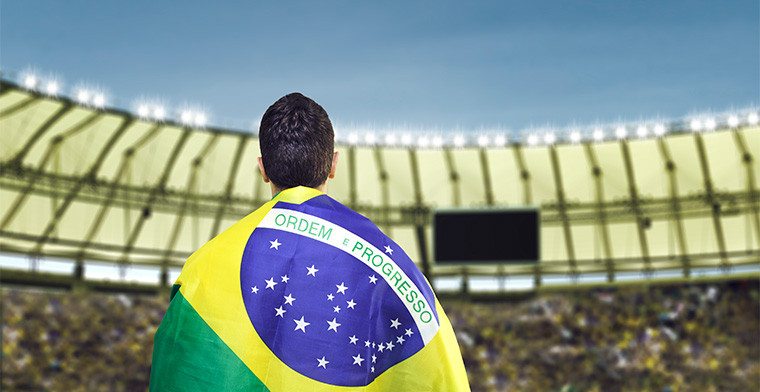
Since 2019, companies have largely exploited the Brazilian sports betting and online gaming market with little restriction, but the new regulations are beginning to put an end to this spree. Starting in 2025, these companies will be required not only to pay taxes and adhere to strict rules on prize payouts and protections against money laundering and terrorism but also to purchase a license to operate in the sector.
The expectation is that this legislation will finally bring an end to the "Old West" mentality within the sector. However, achieving this will require strict enforcement by the new ‘sheriff’—the Secretariat for Prizes and Betting, which is linked to the Ministry of Finance. It's anticipated that the thousands of companies currently operating will be reduced to just over a hundred. In 2023, the sector's turnover was estimated at R$100 billion.
The online betting market was authorised by former president Michel Temer (2016-2018) in the last month of his term in office, with regulation being required two years later, a period that can be extended for a further two years. As a result, Jair Bolsonaro's government (2019-2022) spent four years without touching the agenda, which ended up in the hands of President Luiz Inácio Lula da Silva and Finance Minister Fernando Haddad.
In Law 14.790, of 29 December 2023, the government established a series of measures related to the payment of a 12% tax on betting revenues, detailing the destination of the funds, and also determined protections for bettors, who must receive their winnings within a maximum of 120 minutes.
The companies, which were previously foreign, now require a Brazilian partner who owns at least 20 per cent of the business's share capital. Advertisements promising easy winnings or aimed at minors have been banned. With taxation, the government expects to raise R$12 billion by 2024.
The entry barrier from 2025 will be R$30 million for the operation of three brands in the country for five years, in addition to companies needing R$5 million as a bank guarantee for the business. Those operating without the licence next year are subject to a fine of up to R$2 billion.
“Before, companies could explore the market, but they couldn't be in the country. All the companies had licences from abroad. The money passed through Brazil, but ended up not staying. What's more, the consumer didn't have the same protection as a national company”, says Leandro Pamplona, a lawyer specialising in the betting sector and founding partner of Bonetti, Krugen & Pamplona Advogados Associados.
According to a study by PwC, with each bet, the ‘Casa’ keeps an estimated fee of 12 per cent of the amount wagered - part of this is used to keep the operation running, and the rest is profit.
For Magnho José, president of the Legal Gambling Institute, the betting market will change completely in the country from 1 January. ‘All the problems we see today will cease to exist. What happens today is due to a lack of regulation. The R$2 billion fine damages the margin of any company,’ he says. The institute estimates that more than 90 per cent of bets are placed via Pix or bank deposits, but an ordinance from the Secretariat for Prizes and Betting already prohibits the use of credit cards to avoid debt, an issue that worries Febraban.
Companies in the betting segment see the legislation as positive for the development of the market, which, despite the new impositions, can continue to exist in the country.
‘The rules will bring order to a market that is growing every day, but in an unbridled way. Many people believe that it's a market where you can take a risk and set up a betting site overnight, but that's not the case. And, of course, it's the punter himself who suffers the most,’ said the betting company NossaBet, which operates in Paraná, in a statement.
Ueltom Lima Gomes, CEO of H2, which was born in the poker market and owns H2Bet, says that although it took many years for the country to regulate online betting and gaming, the market offers many opportunities. But before, they were only taken advantage of by companies with a greater appetite for risk, and this should change, especially from 2025 onwards. ‘Revenue hurts the entrepreneur, but it's vital for the rules. It filters out those who want to work seriously,’ he says.
Gomes is betting on his company's 20-year history in the Brazilian market to differentiate itself in the online betting sector, which has many companies from countries like the UK or based in tax havens. ‘We have a relationship with the Brazilian market, which already has a consolidated history, and we have knowledge of the country. The international companies are waging an air war. It's important to have operations on the ground, to get to know Brazil and Brazilians.’
The CEO of Sorte Online, Marcio Borges Malta, says that the company has already been operating in Brazil for 21 years, brokering lottery bets, and has moved into the sports betting and online gaming segment. The business, he says, has the potential to be the company's main business, which is still lotteries.
‘We hear a lot of criticism about betting, but there's a big difference between betting products and lottery games in the return to the player. The consumer is intelligent. They wouldn't be betting so much if there wasn't a quality of entertainment. People bet more on bets because the return is greater. In online games, like Tigrinho or Aviator, the prizes pay out an average of 95 per cent of the total bet. Many people win and many lose,’ says Malta.
Entrepreneurs emphasise that betting is for fun and is not an investment, despite the possibility (not guaranteed) of making a profit.
According to Moacyr Alvim, a professor at the FGV School of Applied Mathematics (FGV EMAp), sports betting has an unpredictability factor inherent in competitions such as football matches, making the probability model of each match unknown.
‘We get a clue as to how it works from the odds. What the bookmaker pays reflects, in a way, the probability of winning and losing. If the odds are 3 to 1, the inferred probability is ⅓. That's a hint of how the odds are inferred by the bookmakers. But nobody knows for sure the real probability of a team winning. On a roulette wheel, you know exactly the probability of winning. If it's red and black, the probability is almost 50 per cent red, a little less because there's zero,’ he says.
Alvim reminds us of the importance of looking at gambling as fun and not as an investment, as well as knowing when to stop. ‘If a person plays for too long, the expected profit is negative.’
A recent ordinance from the Department of Prizes and Betting also stipulates that betting companies must monitor the behaviour of users who may become addicts or pathological gamblers. A fine of up to R$2 billion is also applicable in this case.
Mergers and acquisitions
According to experts, the new laws provide more stability and security to unlock investments in the betting sector in the country, both for consolidation among the current market players and for acquisitions of companies from outside.
‘Brazil has achieved a regulation that allows investment, collects tax, creates jobs and takes the amateur out of the market, which usually has a bad track record in the country, closing its doors and disappearing. From 2025, this market will be able to contribute to the country and bring more seriousness,’ says Brunno Galvão, CEO of the American venture fund Cronwstone Ventures, which says it has up to R$300 million to invest in the sector in 2025 in the domestic market. Today, the fund operates with R$50 million and has the companies NoHype, an affiliate marketing company for bets and other brands, and Elisa.bet, in the betting segment.
For Galvão, the country will initially go through a phase of combating illegal companies and then begin a stage of consolidation in the sector, with mergers and acquisitions, which should leave the national market with some big deals in this market.
Economist Adam Patterson, a partner at Redirection International, says that Brazil has unique conditions for the growth of the betting sector, which he estimates will see a 50 per cent annual increase in turnover by 2028. For this reason, the legislation should attract investment to the national market. But that shouldn't be the only factor. Since competing for customers' favour requires large amounts of investment in marketing, combining operations will be a way of reducing costs and making the business more profitable.
‘With the new regulatory costs, there will be a boost in M&A (mergers and acquisitions) operations. But this will also happen because of the cost of operation and marketing. We'll see internationals buying nationals and we'll also see mergers,’ he says.
Patterson recalls that deals have already been closed in the country even while the legislation was taking shape and starting to be applied. Two examples, he says, were the acquisitions of Torcedores.com by Better Collective last year and of the Loyalty Group by Esportes da Sorte earlier this year.
By Lucas Agrela
Categoría:Legislation
Tags: Sin tags
País: Brazil
Región: South America
Event
ICE Barcelona 2026
19 de January 2026
Toni Karapetrov from Habanero on ICE Barcelona 2026: Regulated Growth, Localization and Strategic Expansion Drive 2026 iGaming Strategy
(Barcelona, Exclusive SoloAzar).- In this interview, Toni Karapetrov, Head of Corporate Communications at Habanero, shares insights from ICE Barcelona 2026, highlighting premium content innovation, high-level industry engagement, key iGaming trends such as localization and gamification, and the company’s strategic focus on regulated market expansion and sustainable growth in 2026.
Friday 13 Feb 2026 / 12:00
Johnny Ortiz, Founder of Zitro: "Our participation in this second edition of ICE Barcelona has been a resounding success"
(Barcelona, SoloAzar Exclusive).- In this interview, Johnny Ortiz reviews Zitro's participation at ICE Barcelona 2026, analyzes the impact of its new FANTASY and ILLUSION products, and reveals the company's strategic priorities for 2026, including international expansion, technological innovation, and strengthening its position in the Spanish market.
Friday 13 Feb 2026 / 12:00
R. Franco Strengthens Its Global Positioning Following a Strong Presence at ICE Barcelona 2026
(Barcelona, SoloAzar Exclusive).- R. Franco Digital's participation at ICE Barcelona 2026 delivered a highly positive outcome for the company, which leveraged the event to consolidate its international presence, showcase its latest innovations for both land-based and online segments, and generate key business opportunities across Europe and Latin America.
Wednesday 11 Feb 2026 / 12:00
SUSCRIBIRSE
Para suscribirse a nuestro newsletter, complete sus datos
Reciba todo el contenido más reciente en su correo electrónico varias veces al mes.











